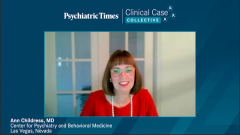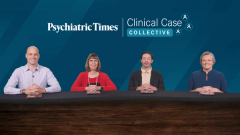
Viloxazine for ADHD in Children and Adolescents
Panelists discuss how recent clinical studies on viloxazine in children and adolescents with ADHD demonstrated early symptom improvement, dose-dependent efficacy, and tolerability, with the most benefit seen at 400 mg in those aged 11 and under.
Episodes in this series

Viloxazine represents the newest nonstimulant attention-deficity/hyperactivity disorder (ADHD) medication option, backed by comprehensive clinical trials involving approximately 1200 pediatric patients. Data from these robust studies demonstrate that viloxazine effectiveness increases with dosage, reaching optimal results at 400 mg for children and adolescents. The medication shows particular promise for patients over 11 years old, with excellent tolerability profiles across age groups. ADHD rating scale improvements indicate significant symptom reduction, with patients often moving from severe to moderate symptom ranges or moderate to mild ranges.
Clinical investigators observed rapid onset of action with viloxazine treatment, noting significant improvements as early as the first week in children and the second week in adolescents compared with placebo groups. The pediatric studies included two phase 3 randomized, placebo-controlled trials for children ages 6 to 11 and 2 additional studies for adolescents. Low-dose studies examined 100 to 200–mg targets, while high-dose studies evaluated 200 to 400–mg ranges. The 600-mg dosage failed to separate from placebo, establishing 400 mg as the maximum effective dose for pediatric populations.
Common adverse effects of viloxazine in pediatric ADHD treatment include somnolence, decreased appetite, and headaches, occurring in approximately half of patients receiving active medication vs one-third of placebo recipients. These adverse events are generally well tolerated and manageable. The extensive clinical trial data support viloxazine as a valuable addition to ADHD treatment algorithms, particularly for families seeking nonstimulant alternatives or patients requiring 24-hour symptom coverage beyond traditional stimulant medication limitations.
Newsletter
Receive trusted psychiatric news, expert analysis, and clinical insights — subscribe today to support your practice and your patients.









